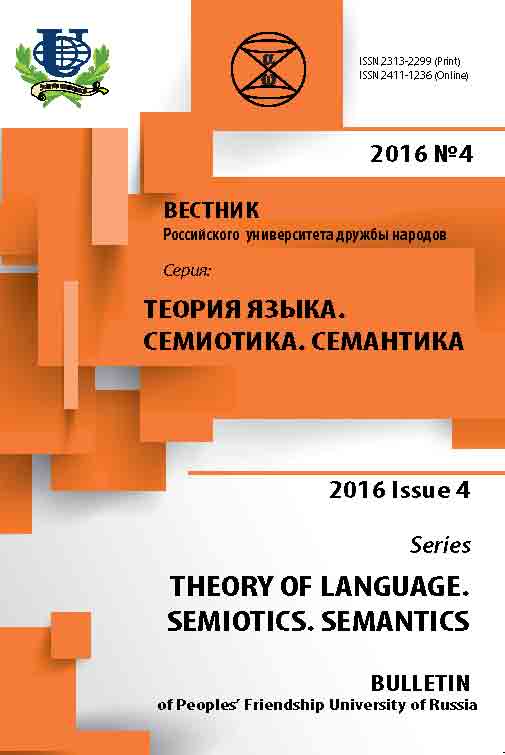The concept of the OTHER in J. Rouaud’s trilogy (“Les champs d’honneur”, “Des hommes illustres”, “Le monde à peu près”)
- Authors: Kosova Y.A1
-
Affiliations:
- Peoples’ Friendship University of Russia
- Issue: No 4 (2016)
- Pages: 186-194
- Section: ARTICLES
- URL: https://journals.rudn.ru/semiotics-semantics/article/view/14315
- ID: 14315
Cite item
Full Text
Abstract
This paper analyses the search for identity in J. Rouaud’s trilogy “Les champs d’honneur”, “Des hommes illustres”, “Le monde à peu près”. The issue of the subject’s structure is scrutinized on the basis of E. Levinas’s ethics, interpreting subjectification as a result of encounting between the subject and the Other. Indeed, such key concepts of E. Levinas as the Other, the epiphany of the face, the non-indifference towards each other, the responsibility of the responsibility of the Other, are to be found in J. Rouaud’s trilogy. Two other concepts of E. Levinas - Death and the absolutely Other - determine each novel’s shaping and the whole trilogy. The quest for identity can be read through a series of metaphors and concepts: darkness and fog, clarity and light, myopia, lameness, smile, climbing . The intertextual dialogue with the Bible, as well as with the pictorial and literary works, plays an important role. The analysis also deals with J. Rouaud’s thanatological approach to a lifestory, starting from a character’s death which launches a dynamic of mourning at the beginning of each novel, and growing as an upward spiral expressed at all levels: structural, conceptual, lexical, rhythmic.
About the authors
Yu A Kosova
Peoples’ Friendship University of Russia
Email: uakossova@mail.ru
6, Miklukho-Maklaya st., Moscow, Russia, 117198
References
Supplementary files












